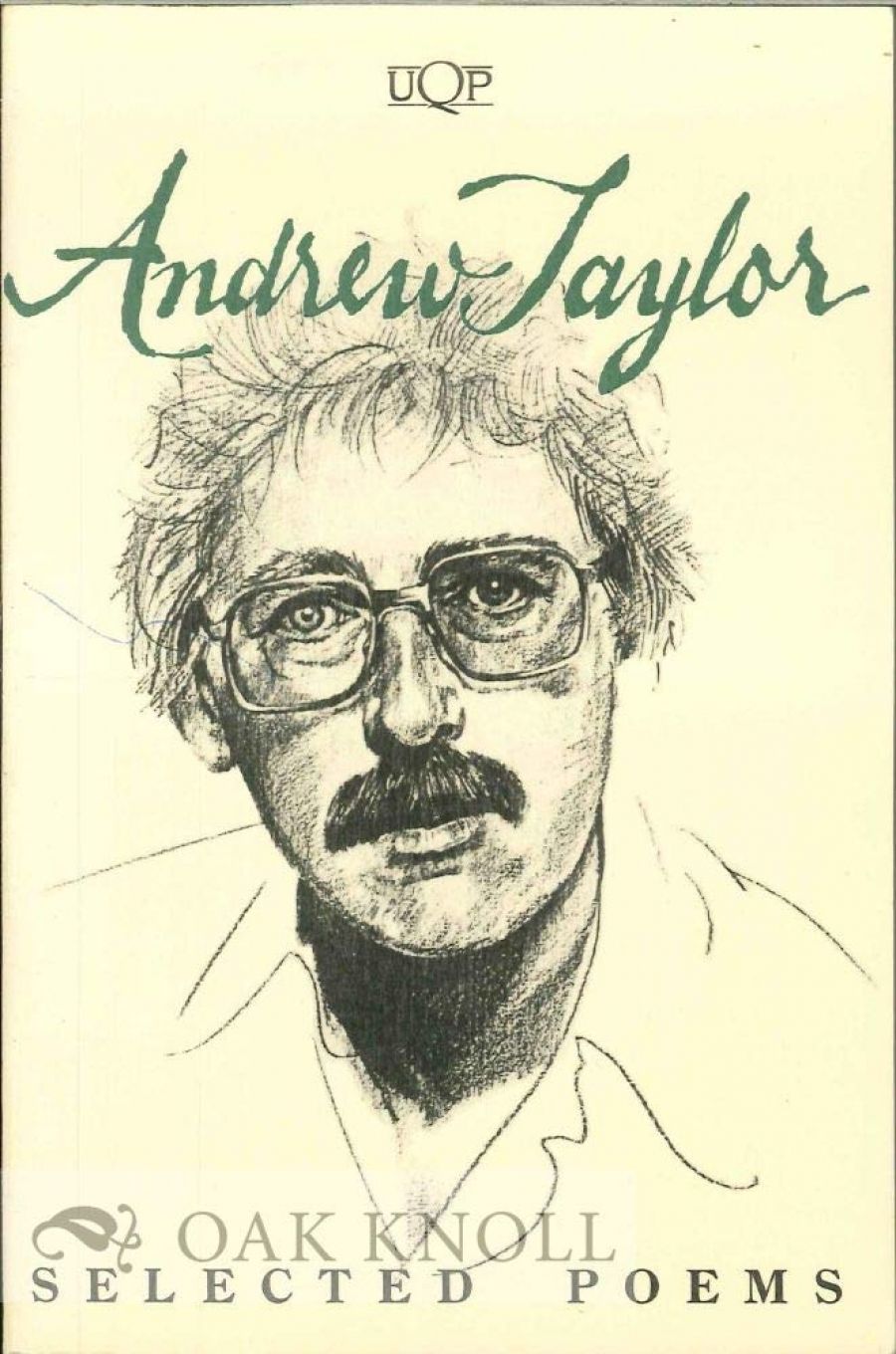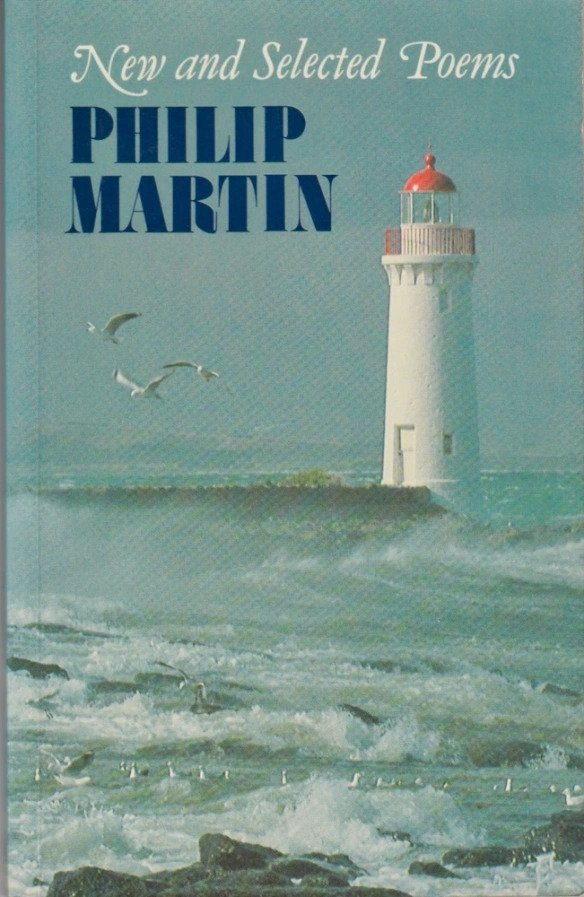
- Free Article: No
- Contents Category: Poetry
- Review Article: Yes
- Article Title: Lyrical travelling
- Online Only: No
- Custom Highlight Text:
Reading these three collections, I was struck by the recurring feel of travel and the great and traditional themes of love, death, and history. These books would not yield much for a study of regionality! As two of the books are selected poems and include work written over nearly thirty years by poets who have spent a lot of time overseas, the sense of history is perhaps not unusual. All the poets have spent time in Europe and America. But the way they view history shows how they differ as poets. Philip Martin seems constantly to feel the history of Europe and Scandinavia in his blood, both in his references back to origins and customs and in his exploration of love and mortality through these.
- Book 1 Title: Selected Poems
- Book 1 Biblio: University of Queensland Press, 205 pp, $14.95 pb
- Book 2 Title: New and Selected Poems
- Book 2 Biblio: Longman Cheshire, 76 pp, $6.95 pb
- Book 2 Cover Small (400 x 600):

In Andrew Taylor’s work, while history is more ambience and less chronological; there is more concentration on the personal past and the almost psychic flux between place, emanation and the self. In early poems such as ‘Ah, Brave New World’ (a series written in New York) that connection seems to include an influence on style also – Ashbery, I suspect.
Jennifer Strauss differs again: she is often giving a woman’s voice to history – to his-story, as we now so often know it – so personages and customs of the past are explored to reveal how history has limited and obscured lives of women, and she seeks, through language, to release them.
But naturally, all three poets offer much more than just this.
Andrew Taylor’s Selected Poems reveals an intense, passionate lyricism – a note struck from the first. His poems frequently acknowledge the signifying powers of language, and the ways in which language, self, and event coalesce, in phrases that pull into each other
lights come on
the trees dissolve in the dusk, and why,
you ask yourself, why should you move,
you have nowhere to go, nobody
expects you, the shadows shift, the dark
forms
into files, columns, which lurch, emerge
closer to the left, to the right, a cat cries
and its cry is savage,
from his first collection, or, more consciously, from recent work where his lines have long since shed comma punctuation:
there are times
words have to be trodden on
and ridden across and scaped over
before they’ll reveal the reticence
that knows how to speak
if you know how to listen.
Coalescence of a different kind is present in these poems, written over twenty-five years, a quality of interchange between essence and substance, though maybe less a transaction and more a process, a perceiving; and this is a subtle and pervasive characteristic in Taylor’s work. There is considerable awareness of loss; there is both the flux and the apprehended moment, and another old theme – of time. In all this work, there is emotion, pain, separation, and love, but none of that snapshot-travel-poetry (which I detest!) ‘Night Pieces’ is one of many poems where these tendencies come together in extended and moving form, where intimacy and love make a counterpoint against apprehension. There is also the felt presence, the indicated presence of others, loved ones usually.
Occasionally I craved a more concrete level in some of the poems, especially to counteract the abstractions of various lines or those references which seemed too personal or too vague, that for me went nowhere and did nothing and so finally were lost. When this happened I found myself quite indifferent to such poems. Paradoxically, the poems from ‘The Invention of Fire’ are more abstract, more freely floating than those before it, yet they mark a sudden surge and shift of control and depth which I found very exciting and which continues, with variations, through the recent poems.
Taylor is a poet whose work I could not dislike – there are no poems so brash or so bad as to generate such negative feelings. Perhaps among the many I admire and am moved by, there are few that have dazzled me, but for me he is simply not that kind of poet. A powerful collection, all the same.
Philip Martin’s Selected Poems draws only from three previous volumes but represents thirty or so years of writing. (I liked the way he presented the first poem ‘Preservation’ out of chronological order as a witty metaphor to introduce the concept of the selected.) His early work shows a traditional influence, even Shakespeare and Donne. This can lead, in a few rare moments, to the gestures being greater than the ‘inspiration’ – as in ‘The Temptation of St Anthony’, which I found awful.
Yet there is among the rather courtly feel of these early poems the sense of what Martin’s work really is – poetry of elegance and finesse, poetry that explores beauty, love and mortality; and regardless of the datedness of their style, to my ear, I found many of them excellent and a joy to read. They lead on to lines like these, showing Martin’s style and a sense of readiness to recognise, to listen inside history and time.
Not dreams. What I bring with me
Into the early autumn sunlight, lying
On leaves and grass like a lover’s gaze,
Is less and more than dream.
No figures, no events. Only the
knowledge:
I have communed, have been communed
with.
Most of the poems are more clearly contemporary and yet they range over subject matter from sources as varied as the bog people, Romans, tombstones in Yugoslavia, Monteverdi, and Donne, as well as contemporary life. Again and again the themes are love and death and the voices from the past, this side of the grave.
I am aware of gentleness, openness, a great flexibility of sensibility and a style that despite its conservative range is capable of delivering a surprising array of effects, from the example quoted above to this, from ‘Nursing Home’.
She sits here in her chair beating her
tray:
Sister sister sister sister sister!
Clenches her lips, hums against them. And
again
Sister sister sister sister sister!
High, scratched voice: Behind me behind
me behind me!
What is Mother? A pause. I don’t
know.
And again the drumming: Sister sister
sister!
The abiding sense of sensuality, passion and compassion make his work an unusual delight.
Many of Jennifer Strauss’s poems, from Labour Ward, her third collection, explore the ways of seeing women, both now and from the past, and seek a language, a voice for them (from ‘Bluebeard Rescripted Version III;’ ‘Sister Anne, Her Story’):
How would you like to be listed
Among the dramatis personae merely
‘Her sister’ and have no lines
I wouldn’t know, I’ve walked off
the edge of the script
This also shows up Strauss’s occasional tendency to fashion involved titles! Several of the poems in this book are then monologues based on historical figures, poems with subjects such as the women in the anabaptist cages, the wife of Horatio having her say, even the Viennese physician, Ignaz Semmelweis.
This latter poem presented an unusual dilemma for me. While feeling attracted to the thematic nature of her work, I found some of the early poems in the book worried me technically. Having looked forward to this collection, based on admiration of individual poems I had seen of Strauss’s such as the monologue ‘Guinevere Dying’, I found the Semmelweis monologue wooden, flat, and quite unconvincing. The epigraph about this physician – whose theory of the origins of childbed fever might have saved the lives of women had he not been persecuted by his male colleagues – was more telling that the poem that followed.
There is a slight tendency to awkwardness, often the result of heavy or poor rhythm and adjectives leaning on each noun. But set against these are the poems which for me worked far better, lyrical and moving poems – and often personal, based on experience. Poems such as ‘The Snapshot Album of the Innocent Tourist’, ‘Pine-cones’ and ‘My Grandmother’ (and many others), where wit, emotion, and sinuous awareness work beautifully together.
Another triumph is ‘Tending the Graves’, a superbly realised poem which while in common with her general theme of women and the voice of women and the way in which these poems give release, faces with insight and honesty the understandings of how the dead cannot release us.
It’s not reproach. They have no need to tell
us ‘You
Have given away my books, taken another
lover into my bed,
Made of my children something I do not
approve’ – all that
We can say for ourselves. It is absolute
absence.
They are so engrossed by death they refuse
even to haunt us.
We must tend the grave and walk away
unrewarded,
Unreproached, unforgiven: our feet heavy
with life.
These poems more than out-balance the more rhetorical monologues, and show Strauss as a perceptive and graceful poet.


Comments powered by CComment